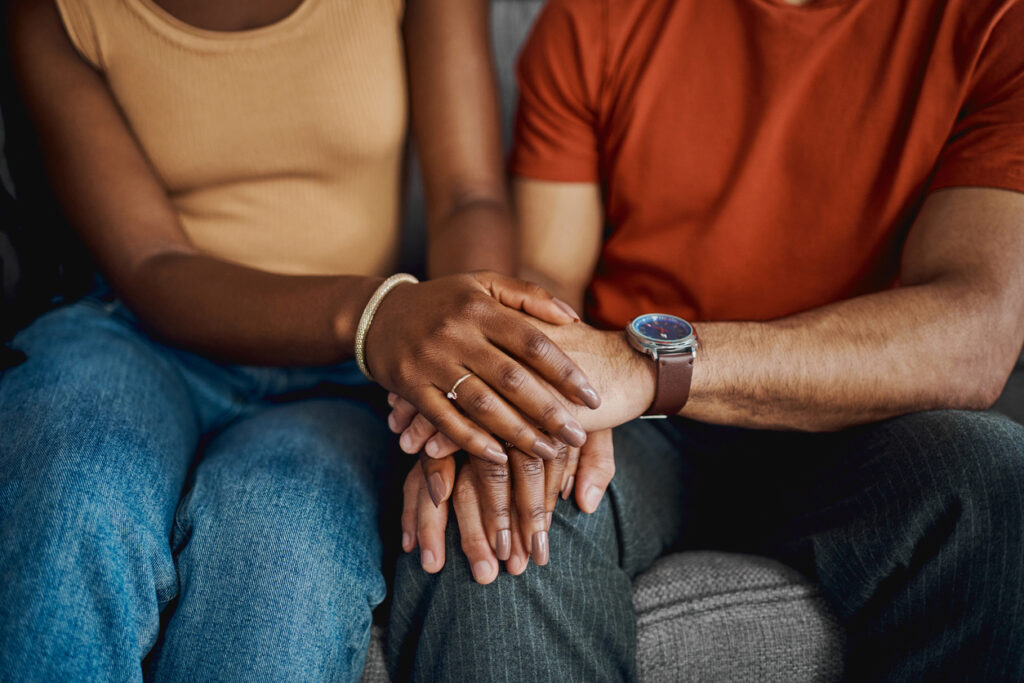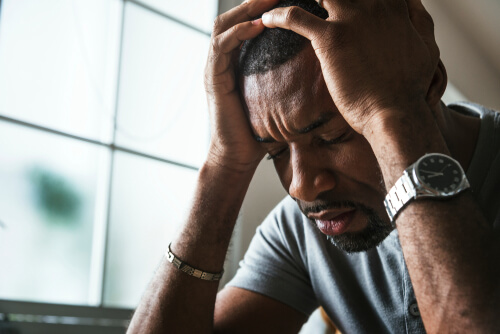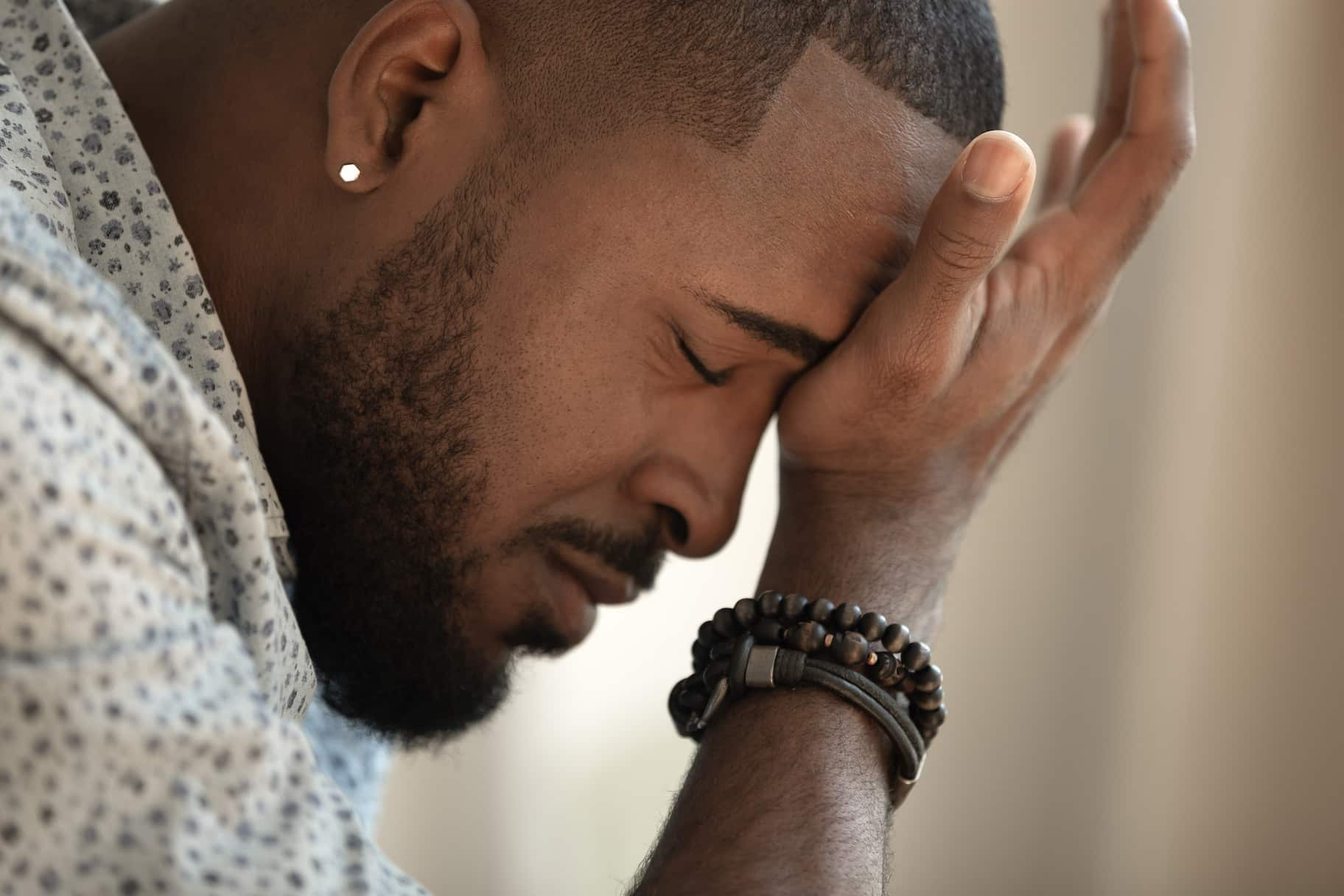Do you feel like you just can’t have enough affection? Do you feel like you’re starving for physical touch?
If you do, know that it is entirely natural. In fact, it’s a human need. Humans are wired to have a deep longing for physical contact. Our need for physical affection with human beings is rooted in our biology, as touch and close connections with others is of huge importance in our overall well-being, mental health, and survival.
Being touch starved is also known as touch deprivation or skin hunger and it is more common than you think. This phenomenon can result from various factors, such as social isolation, personal circumstances, or even cultural norms that discourage physical affection.
However, aside from being touch starved, extreme craving for affection, whether physical or emotional, can sometimes indicate an overdependence on other people for ensuring your own wellbeing. It can even indicate love addiction, i.e. attachment dysregulation. This form of craving may stem from unmet emotional needs, childhood trauma, or attachment issues, causing an individual to seek excessive validation and support from external sources.
If you find yourself constantly thinking, ‘I just really want to be loved with affection’ and feel like you cannot function without it, keep on reading to find out why that may be the case and how you can learn to regulate your emotions. In the following sections, we will explore the potential causes behind your intense craving for affection, as well as strategies for fostering self-reliance, self-love, and healthier emotional regulation in your relationships.
Why Do I Crave Affection?

The Need For Intimacy
The first and the most obvious reason why you may crave affection is because you don’t have enough of it in your life. Some people tend to experience this due to a lack of close relationships, the absence of a romantic partner, or simply not having a strong support network of friends and family. You may crave someone and be feeling lost and lonely for a while, without anybody to provide you with the physical and emotional connection, and intimacy. Many people experienced this during the recent pandemic, which led to increased isolation, feelings of loneliness and limited opportunities for social interaction.
Aside from longing for touch, an intense craving for love and affection can also happen for other reasons. Some individuals may have a naturally higher need for affection and emotional support, leading them to feel unfulfilled even when they have seemingly positive relationships. You may actually have people in your life who love and care for you, and you still can’t satisfy your cravings. In this case, your need for affection may represent something deeper. This could include unresolved emotional issues from your past, such as childhood trauma or neglect, which can create a persistent need for validation and connection.

Low Self Esteem and the Need for External Validation
Additionally, craving affection may be a result of low self-esteem or self-worth, causing you to feel worthless and to seek external validation as a way to feel more secure in yourself. When you don’t feel confident or worthy of love, you may become reliant on others to provide the reassurance and validation that you’re unable to give yourself. This strong desire for affirmation can lead to an unhealthy cycle where you depend on others to make you feel good about yourself, rather than cultivating a strong sense of self-worth from within.
Building self-worth involves recognizing your own value, setting healthy boundaries, and learning to be kind to yourself. By developing a more positive self-image, you can reduce the need for external validation and ultimately create more balanced, fulfilling relationships. This may involve engaging in self-care practices, setting achievable goals, celebrating your successes in healthy ways, and surrounding yourself with supportive people who uplift and encourage you.

When You Grow Up Without Affection
People who experience intense love cravings often lacked appropriate affection in their childhood. This could be due to parents or caregivers who were emotionally unavailable, inconsistent, or neglectful, leading to an inability to form secure attachments. Different attachment styles, such as secure, anxious, avoidant, and ambivalent, can significantly influence one’s need for affection and relationship dynamics. Unfortunately, these people may go through life feeling as though they do not deserve love, and still desire to be held, feel validated, feel loved, and appreciated. This can cause them to seek self-love through other people, trying to heal their wounds and make up for the lack of affection.
Insecure Attachment
However, craving affection and love can also arise from attachment dysregulation, or love addiction, involving obsessive behaviors towards another person. This condition is characterized by a strong and persistent need for love and affection, often leading to unhealthy, codependent relationships.It tends to arise from survival patterns developed in childhood or a particularly stressful situation in your life where you had to learn to tolerate feelings of neglect and abandonment. In some cases, attachment dysregulation can also be triggered by trauma or other significant life events that challenge one’s ability to form and maintain healthy relationships.
If you tend to feel like other people don’t love you enough, fear that they may leave you, or experience anxiety over your romantic relationship, it may be the case that you’re dealing with attachment dysregulation that requires your attention. Understanding your own attachment style and how it impacts your relationships can be a crucial part of addressing this issue.Seeking professional help, such as PIVOT’s relationship coaching, can be a valuable step in addressing these issues and developing healthier attachment patterns. This process may involve exploring your past experiences, understanding your attachment style, and learning strategies to build secure and fulfilling connections with others.

What Are The Characteristics Of People Who Crave Love?
People who experience intense cravings for love often have the following characteristics:
- Obsession with love and affection: Do you experience obsessive thinking about affection? To the point that you sometimes feel like nothing else matters? People who want to be loved and crave affection often can’t let it come naturally and get anxious when they do not receive it. This fixation on love can lead to an inability to focus on other aspects of life, such as work, hobbies, or personal growth.
- Controlling behaviors: Craving love can also make you exhibit controlling and possessive behavior towards those who show you love and affection. This may be a mechanism for avoiding pain and abandonment. Such behaviors can strain relationships and create an unhealthy dynamic, where the person who craves love tries to control their partner’s actions and emotions to ensure they won’t leave or withdraw affection.
- Demanding and begging affection: Similarly, if affection holds the most important place in your life, you may be prone to demanding it from other people. Or you may beg for them to give you the love you desperately need, which can be considered a state of limerence. This intense longing for love and connection can put undue pressure on relationships and make it difficult for partners to meet the high expectations set by those who crave love.
- Trust issues: Those who experienced abandonment or neglect may find it exceedingly difficult to trust another human being and develop lasting relationships. They may be suspicious, constantly expecting ulterior motives, conspiracies, and hidden agendas out of fear of getting hurt. This lack of trust can cause a person to question the sincerity and loyalty of their partner, leading to frequent misunderstandings and conflicts in relationships.
- Accepting toxic behaviors: Unfortunately, those who lack affection may have a tendency to accept abusive behaviors from those they bond with. They may also struggle with differentiating between disagreements and an abusive situation. This vulnerability can make them more likely to stay in unhealthy relationships, believing that any form of affection is better than none. As a result, they may endure emotional, physical, or verbal abuse, further damaging their self-esteem and ability to form healthy relationships in the future.

What Do You Do When You Crave Affection?
Learning about yourself and why you’ve grown to obsessively crave affection and attention is a good first step towards building a healthy relationship. This self-exploration can involve reflecting on your past experiences, understanding your attachment style, and identifying the underlying reasons for your intense need for physical touch. You may try to do this on your own or speak with an insightful relationship coach who can help you understand your own needs and begin to heal your wounds.
Through self-love and acceptance, you will begin to rely less on receiving affection from others and more on yourself for affection, and begin to build a healthier foundation for future relationships.
A few strategies to cultivate self-love and acceptance include:
1. Practicing self-compassion: Treat yourself with kindness and understanding, especially when experiencing difficult emotions. Recognize that everyone has flaws and makes mistakes.
2. Setting healthy boundaries: Establish limits in your relationships to protect your emotional and mental well-being. This can help you avoid becoming overly dependent on others for affection and validation.
3. Engaging in self-care: Prioritize activities that promote physical, emotional, and mental health, such as exercise, meditation, and hobbies that bring you joy and happiness.
4. Developing a strong support network: Surround yourself with positive, supportive people who encourage your personal growth and help you feel valued and cared for.
5. Challenging negative self-talk: Identify and challenge self-defeating thoughts and negative feelings that contribute to low self-worth or feelings of unworthiness.
By taking these steps to nurture self-love and acceptance, you can gradually reduce your reliance on external sources of affection and develop a more balanced approach to relationships, fostering healthier connections with others.

How Do I Stop Craving Love And Affection?
Luckily, there are numerous ways to curb your love cravings and depend less on other people. Here are some tips:
- List Your Favorite Hobbies
Ask yourself: what do you enjoy doing on your own? What makes you happy? Make a list of hobbies and interests you enjoy, no matter what they may be. Acknowledge them and think about what else you’d like to try. Engaging in these hobbies can provide a sense of personal fulfillment, happiness, and self-sufficiency, reducing your need for validation and affection from others.
- Think About What You Love About Yourself
Write down what you like about yourself, whether it’s physical or more related to your character. What is good about you? Are you kind, compassionate, or reliable? Or are you rational, driven, and responsible? No matter what it is, focus your attention on the positive aspects of your personality instead of poring over your faults. Regularly reflecting on your strengths and accomplishments can help you build genuine love for yourself, while boosting your self-esteem and making you feel more secure in your own worth, without relying on external sources of validation.
- Improve What You Can
Think about what you can and cannot change in your life. Improve the things you can control, and make peace with those you can’t. Let’s say you’d like to be better at your job and can’t control how your boss treats you. In that case, you’d work hard to improve your skills and build healthy boundaries in the workplace. Then, move on to another job – if need be – after you learn how to be your own advocate in the workplace. Focusing on personal growth and self-improvement can empower you and foster a sense of self-reliance, diminishing your need for love and affection from others.
- Take It Slow
Rebuilding confidence and learning to love yourself is a slow, gradual process. Try not to pressure yourself into changing and focus on each step at a time. Doing everything at once can overwhelm you and even cause you to abandon your journey entirely. Instead, work on yourself and your relationships one step at a time and give yourself space to heal. Acknowledge that self-improvement is a lifelong journey, and progress may not always be linear. Celebrate your achievements along the way, and be patient with yourself as you navigate the ups and downs of personal growth.
Learn To Deal With Love Addiction At A PIVOT Retreat

At PIVOT, we use our vast experience and knowledge to help individuals like you on their journeys to heal childhood wounds, build healthier relationships, and reach a level of emotional intimacy that you desire. Whether you feel like you aren’t heard in your relationship, fear that you may be growing apart from your partner, or need help dealing with relationship guilt, we are the ones to call. Our team of dedicated professionals is committed to providing personalized support, tailored to your unique needs and circumstances.
Experience our well-crafted relationship retreats or make use of our individual coaching sessions to begin your healing journey. Our relationship retreats offer immersive, transformative experiences, designed to help you and your partner reconnect, rediscover, and rejuvenate your relationship. In our individual coaching sessions, you’ll work one-on-one with a skilled coach who will help you identify and address the underlying issues contributing to your love cravings and relationship challenges.

We are here to listen and guide you towards self-love, acceptance, and peace. By partnering with PIVOT, you can feel confident that you’re taking a significant step towards personal growth and building more satisfying, fulfilling relationships. Let us support you on this journey, providing you with the tools, resources, and guidance necessary to create lasting change in your life.



















